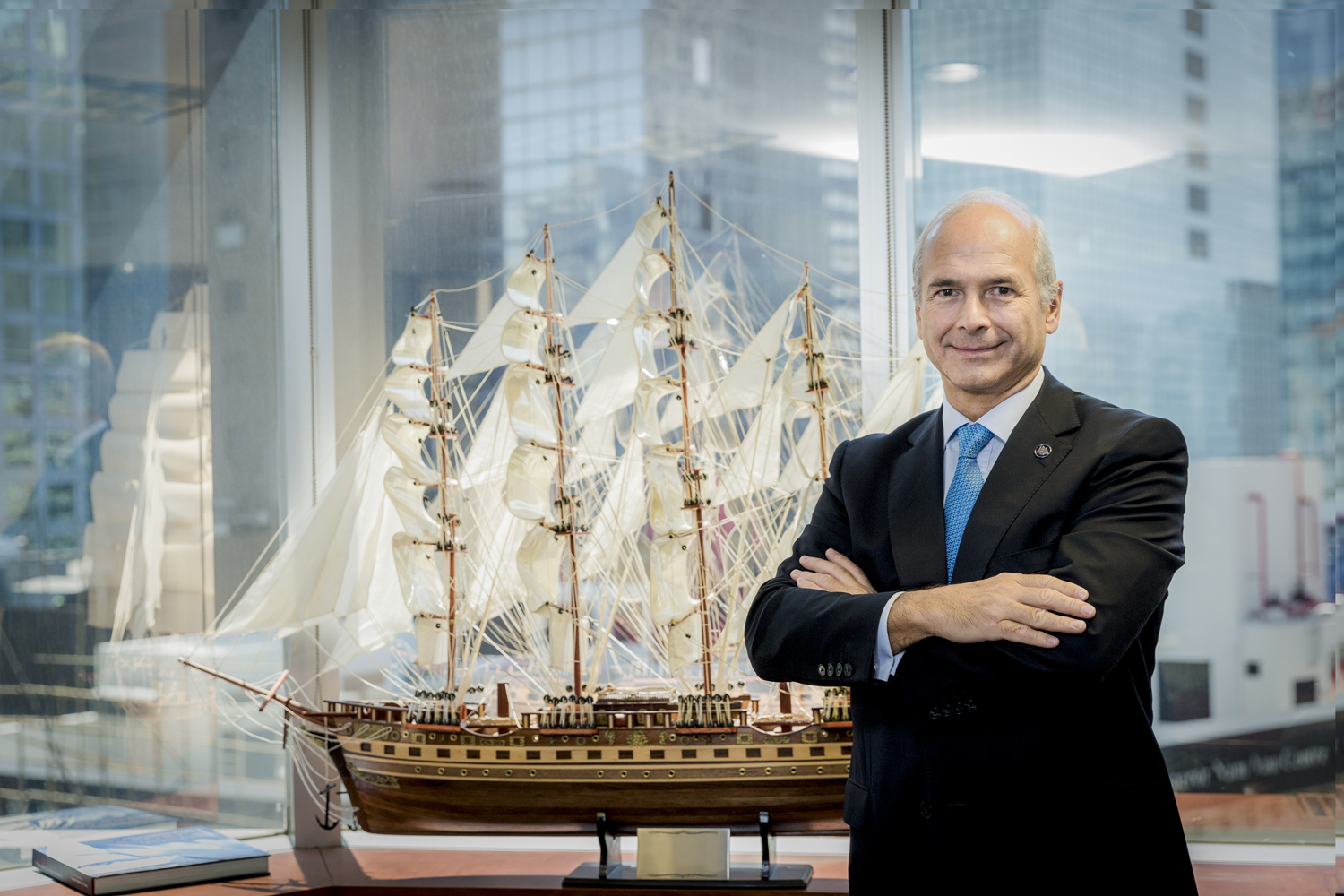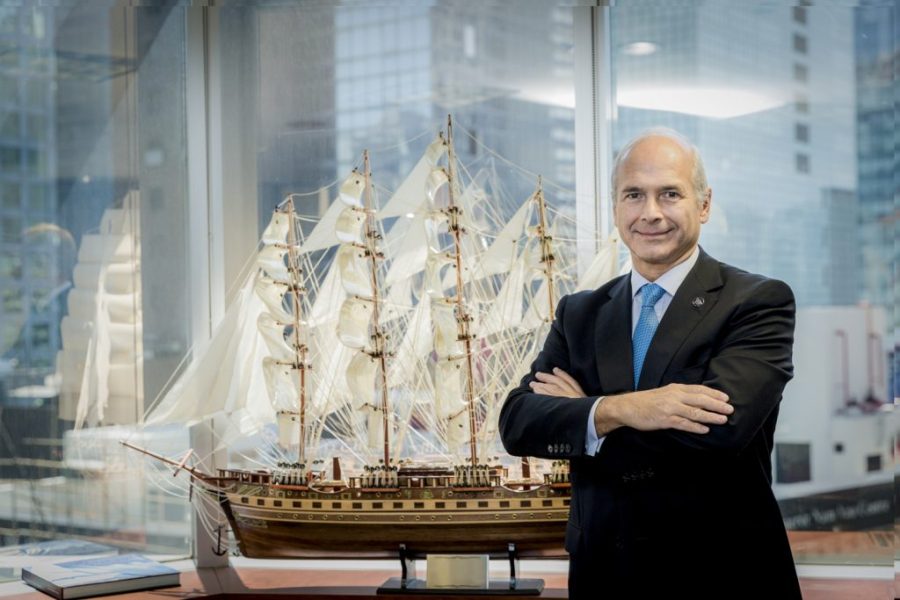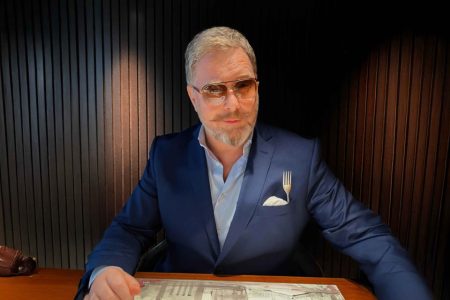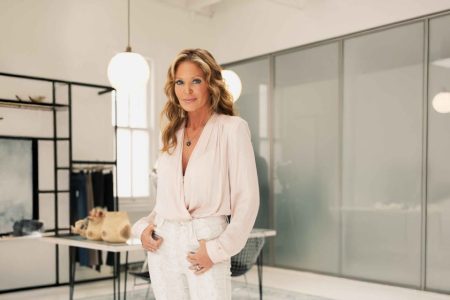For the first time in his life, Carlos Cid Álvares is living abroad. He says he couldn’t reject the offer to lead a century-old institution with an excellent reputation like Banco Nacional Ultramarino.
Álvares arrived a year ago in Macao, a city he had visited on holiday twenty years ago. The difference between then and now, he says, is huge. “I’m sure some people miss the old traditional Macao, but nowadays it’s better.”
Macao is the first place he has lived in outside Portugal, though throughout his career he often travelled abroad for work reasons. He admits that he misses his friends and the beach, but that the adjustment has been “frankly easy”.
He arrived in Macao in March 2018 to head Banco Nacional Ultramarino (BNU). “I couldn’t refuse the opportunity to again be number one at a bank, this one 117 years old, with positive results and enviable financial health,” he states. He succeeded from former BNU CEO Pedro Cardoso that year.
Carlos Álvares lists various strong points of the institution he now leads, such as the fact that it is one of Macao’s two currency-issuing banks, its longstanding relationship with the gaming operators and corporations based here and the fact that a thousand bank accounts are opened every month, “largely due to the strong image of the bank and the people who work here.”
He highlights two challenges. The bank’s client base is aging. “It’s not a concern now, though it will be in ten or fifteen years. It has 240,000 clients, but with a strong market share in people over fifty years old,” he explains. And the bank needs to build closer relationships with small and medium-sized enterprises (SMEs). “We’re very good with the casinos and large companies but not so good with SMEs. So we’re making an effort to position ourselves closer.”
Challenges have been a maxim during his long and versatile career.
He began working in 1981 at Correios e Telecomunicações de Portugal, the country’s leading post and telecoms firm. He switched to Banco Português do Atlântico in 1984, where he worked as an auditor for four years before moving on to the Banco Comercial Português group. He remained there from 1988 to 2011, eventually serving as chairman of the board of Millenium BCP & Trust Cayman. He then worked for Banco Popular Portugal (100% held by Banco Popular Español) until 2017, becoming its president in July 2015. During this period, he also served as managing director and president of Popular Gestão de Activos (assets management), managing director of Eurovida and of Popular Seguros (insurance), and president of Popular Factoring, all entities pertaining to Banco Popular Español.
The beginnings
Before joining the labour market, he studied business administration and management at the Catholic University of Lisbon from 1976 to 1981. “I thought of going into agronomy, but it was the period after the April 1974 revolution and the universities were in a state of upheaval, so my father recommended that I go to a private university. I took his advice and went there,” he recalls.
The penchant for agronomy stayed and has been fulfilled by time spent on the property he owns with his two brothers near Viseu in northern Portugal. But despite his enjoyment of nature, he grew up in the city.
He was born in Lisbon on the 13 January 1959 and lived in nearby Monte Estoril until he was thirty, studying at the German and Salesian schools and at secondary school in São João do Estoril. “I got married when I was twenty-seven and eventually moved to Lisbon, where I have lived until now. But I’m tempted to move back to Monte Estoril when I leave Macao,” he confesses.
For the time being, he’s well settled over here. “Macao isn’t just gaming. It was a pleasant surprise. There are tremendous advantages to living here. It’s incredibly safe. Excellent hotels. I love Chinese food and there are fantastic restaurants. I only have good things to say,” he states.
Perhaps the only difficulty is the language, which he treats as one more challenge facing him in Macao. “What’s very hard is learning Mandarin. I’ve had some classes. I’ll have to keep trying.” If successful, he’ll be able to add another language to the Portuguese, English, French and Spanish that he already speaks.
Carlos Álvares, who is now sixty years old, also has time for other activities. His days almost always begin at seven in the morning in the gym. He also swims and goes for long strolls on weekends, accompanied by his wife.
His hobbies include golf, tennis and cinema, among others. He’s a member of Sporting Club of Portugal, Club Lusitano in Hong Kong, the Military Club in Macao and the Grémio Literário in Lisbon. Amid all these activities he also finds time for his close family, his wife, and for his six children scattered around the world.






